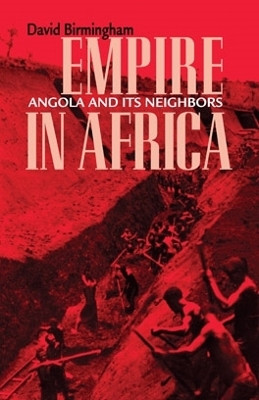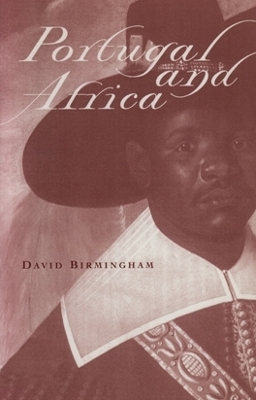Research in International Studies, Africa
2 total works
The dark years of European fascism left their indelible mark on Africa. As late as the 1970s, Angola was still ruled by white autocrats, whose dictatorship was eventually overthrown by black nationalists who had never experienced either the rule of law or participatory democracy. Empire in Africa takes the long view of history and asks whether the colonizing ventures of the Portuguese can bear comparison with those of the Mediterranean Ottomans or those experienced by Angola's neighbors in the Belgian Congo, French Equatorial Africa, or the Dutch colonies at the Cape of Good Hope and in the Transvaal. David Birmingham takes the reader through Angola's troubled past, which included endemic warfare for the first twenty-five years of independence, and examines the fact that in the absence of a viable neocolonial referee such as Britain or France, the warring parties turned to Cold War superpowers for a supply of guns. For a decade Angola replaced Vietnam as a field in which an international war by proxy was conducted.
Empire in Africa explains how this African nation went from colony to independence, how in the 1990s the Cold War legacy turned to civil war, and how peace finally dawned in 2002.
Empire in Africa explains how this African nation went from colony to independence, how in the 1990s the Cold War legacy turned to civil war, and how peace finally dawned in 2002.
Portugal was the first European nation to assert itself aggressively in African affairs. David Birmingham's Portugal and Africa, a collection of uniquely accessible historical essays, surveys this colonial encounter from its earliest roots. The Portuguese established sugar plantations on Africa's offshore islands and built factories on the beaches in the fifteenth century, but Professor Birmingham explains that their focus shifted to regions where medieval African miners had discovered deep seams of gold ore. Later, when even richer mines and more fertile lands were captured from the native peoples of the Americas, Portuguese ships became the great "slave bridge" that spanned the Atlantic and ferried captive black workers to the colonies of the New World. Portugal lost its major mining claims in Africa to the British, but it left a legacy of a new pattern of white settler colonization based on American-style plantations. The blending of European and African cultures and races led to the emergence of elite communities, from the Kongo princes of the seventeenth century to the creolized generals of today.
Portugal and Africa focuses extensively on Angola to cast new light on the final years of the colonial experience and its traumatic legacies. After 1950, Portuguese Angola became one of the most dynamic of Africa's colonies and the largest white colony outside of Algeria or South Africa. Angola's eventual collapse in a series of wars had devastating results. Birmingham brings the terror and devastation to life in a series of powerful chapters that are a model of disciplined scholarship and informed passion.
Portugal and Africa focuses extensively on Angola to cast new light on the final years of the colonial experience and its traumatic legacies. After 1950, Portuguese Angola became one of the most dynamic of Africa's colonies and the largest white colony outside of Algeria or South Africa. Angola's eventual collapse in a series of wars had devastating results. Birmingham brings the terror and devastation to life in a series of powerful chapters that are a model of disciplined scholarship and informed passion.

